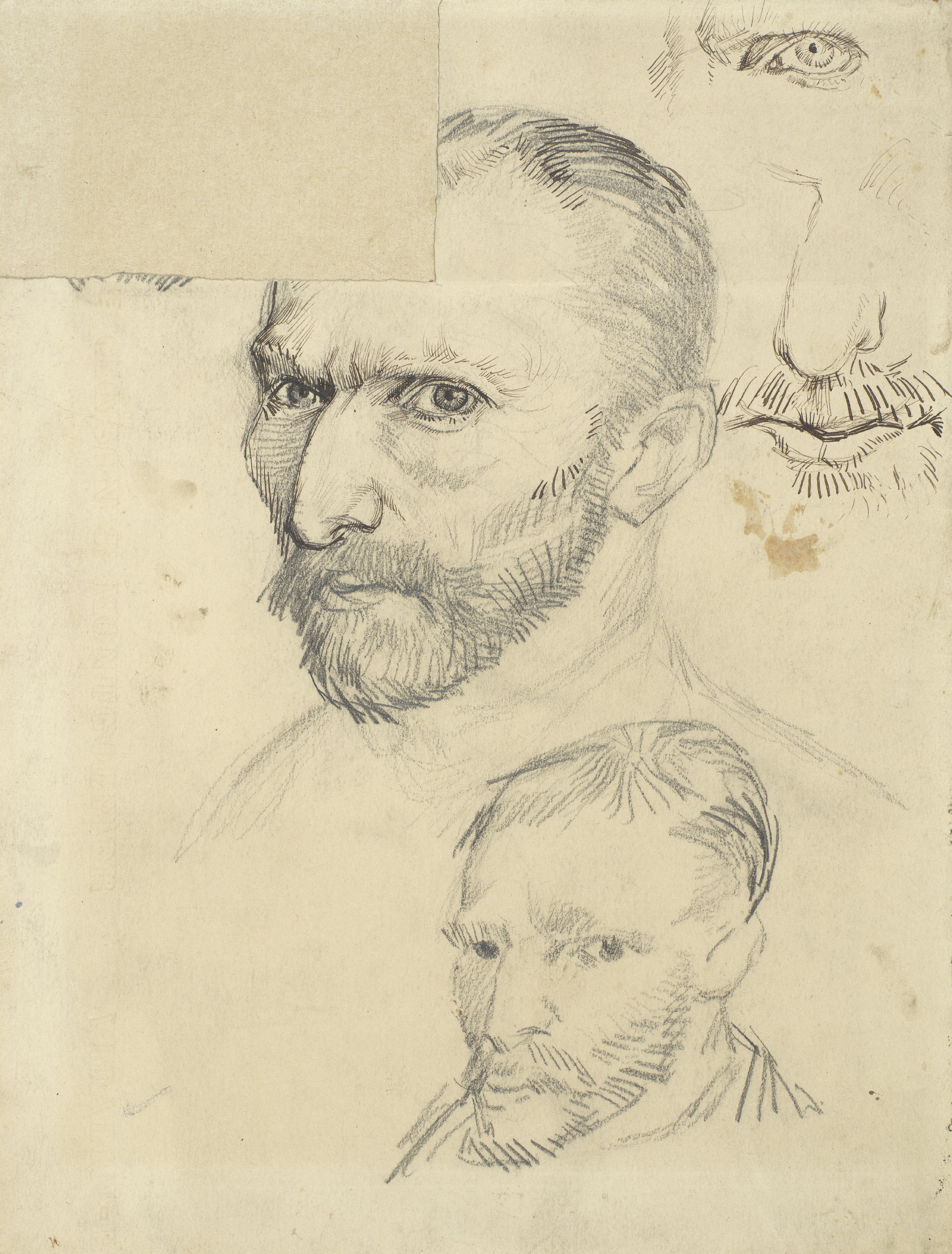
A newly opened exhibition at the Courtauld Gallery in London looks to offer insights into Vincent van Gogh’s ever-changing and volatile psyche.
“Van Gogh: Self-Portraits,” curated by Karen Serres, brings together 16 works by the Dutch master from 1886 to 1889, around half of the 35 self-portraits and the two drawings that survive from the era.
Featuring works from the Courtauld’s own collection, as well as loans from esteemed institutions worldwide, the show is the first in 25 years to assemble so many of his self-portraits, the gallery said.
“People say that it’s difficult to know oneself… but it’s not easy to paint oneself either,” the artist wrote in September 1889 in a letter to his brother Theo.
Courtauld staff member Aaron Stennett (l) and curator Karen Serres put the finishing touches to the installation as two of Vincent Van Gogh’s self-portraits. Courtesy of The Courtauld Gallery.
The paintings can be viewed as representations of the artist’s evolving psychological and mental state, from Self-Portrait with a Dark Felt Hat (1886-1887), created during a spell in Paris, when he experienced a breakthrough in his artistic style, to the somber depictions he made of himself in the following years.
Two paintings created in 1889, shortly before his death in 1890, are among the highlights of the exhibition, and are reunited for the first time in more than 130 years since they left the Saint-Paul-de-Mausole asylum in Saint-Rémy-de-Provence in the south of France, where the artist was living at the time.
The two self-portraits were painted in late August and early September 1889, just about a week apart, but they were vastly different.
“The first was painted as he was still in the midst of the severe mental health crisis that had struck him in mid-July, while the second was created as he was recovering,” the gallery said.
Sadly, Van Gogh did not survive much longer. “If I could have worked without this accursed disease, what things I might have done,” the artist wrote in one of last letters.
The exhibition runs until May 8. See more images from the show below.
Vincent van Gogh, Self-Portrait (September 1889).
Vincent van Gogh, Self-Portrait with Bandaged Ear (January 1889).
Vincent van Gogh, Self-Portrait With Straw Hat (August – September 1887).
Vincent van Gogh, Self-Portrait (c. 1887).
Vincent van Gogh, Self-Portrait as a Painter (December–February 1888).
Vincent van Gogh, Self-Portrait with Grey Felt Hat (September – October 1887).